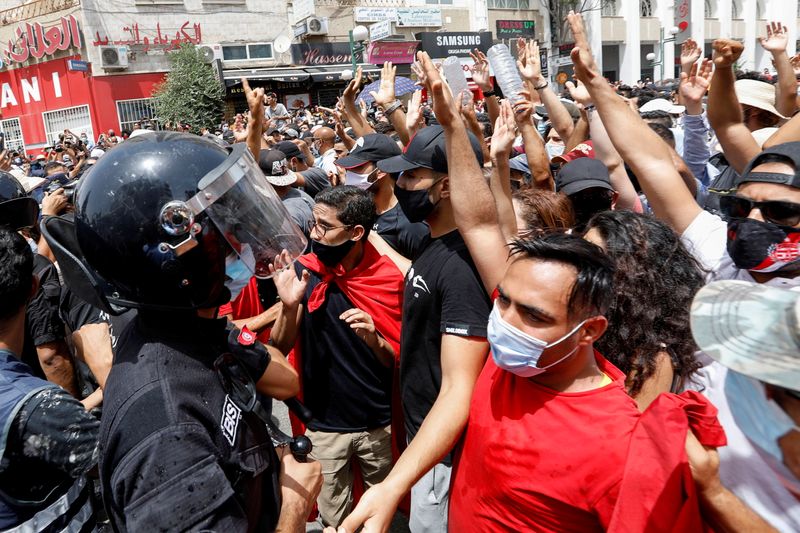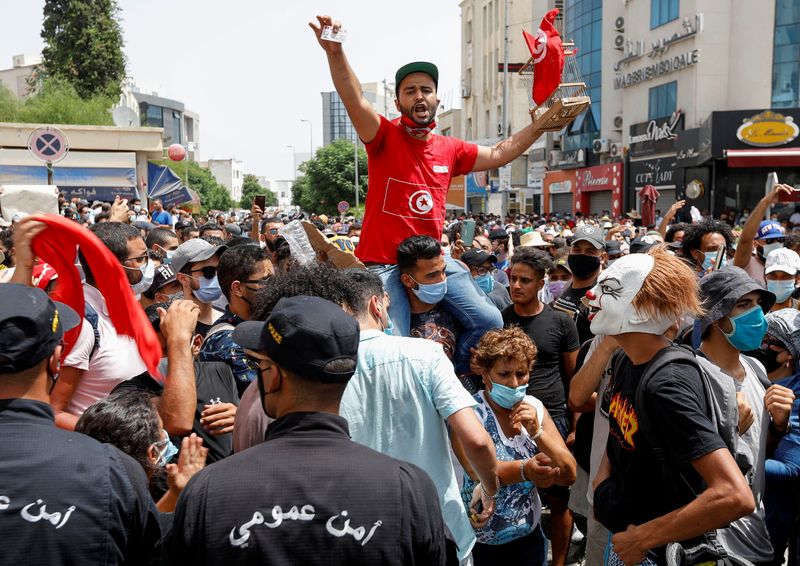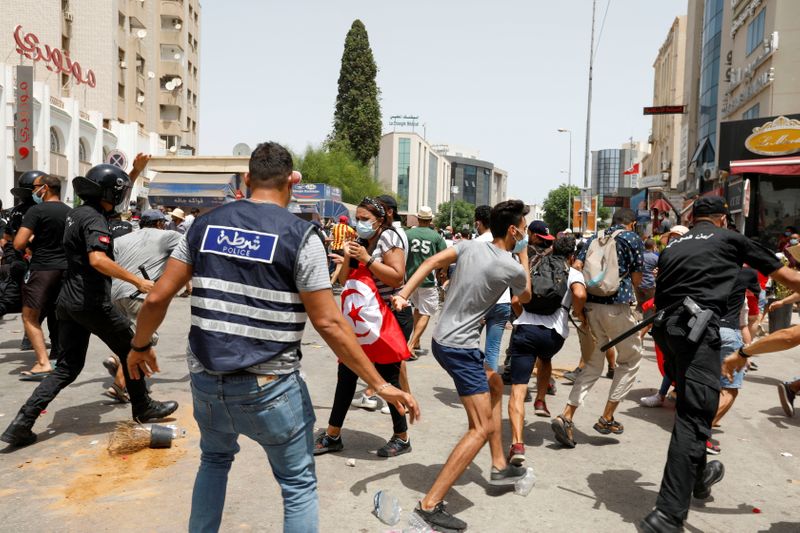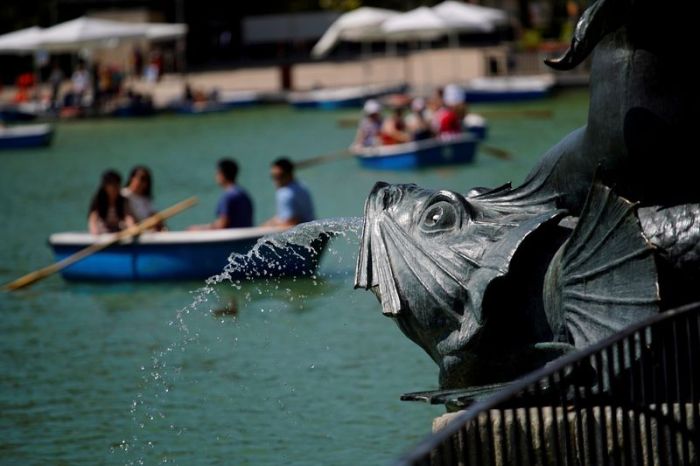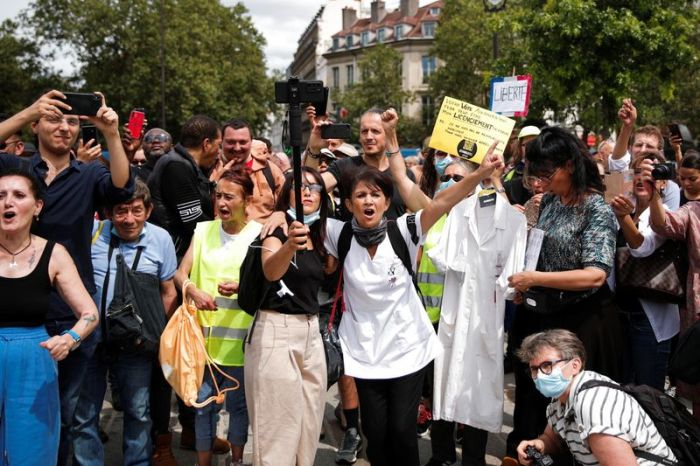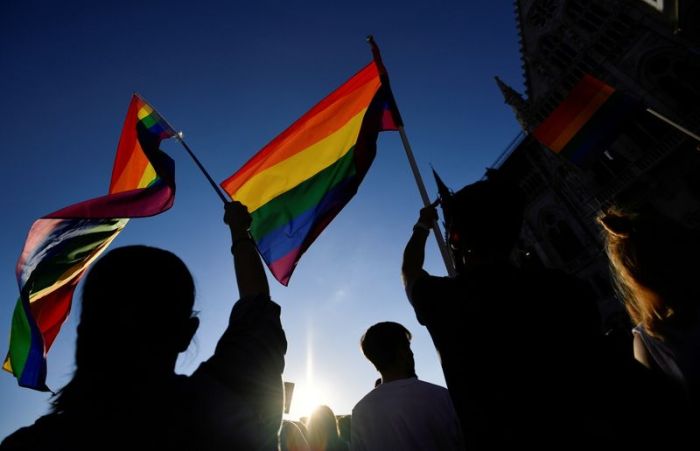TUNIS (Reuters) -Police and protesters clashed in several Tunisian cities on Sunday as demonstrators demanding the government step down attacked offices of Ennahda, the moderate Islamist party that is the biggest in parliament.
Witnesses said protesters stormed or tried to storm Ennahda offices in Monastir, Sfax, El Kef and Sousse, while in Touzeur they set fire to the party’s local headquarters.
The violence came as hundreds of protesters rallied in each of the main cities after a spike in COVID-19 cases that has aggravated economic troubles and exposed the failings of a squabbling political class.
The protests, the biggest in Tunisia for months and the biggest to target Ennahda for years, were called by social media activists. No political parties publicly backed the rallies.
In Tunis, police used pepper spray against protesters who threw stones and shouted slogans demanding that Prime Minister Hichem Mechichi quit and parliament be dissolved. There were other big protests in Gafsa, Sidi Bouzid and Nabeul.
The protests raise pressure on a fragile government that is enmeshed in a political struggle with President Kais Saied, as the government tries to avert a looming fiscal crisis amid a weeks-long spike in COVID-19 cases and increased death rates.
The pandemic has hammered the economy which was already struggling in the aftermath of the 2011 revolution that ousted long-time authoritarian leader Zine al-Abidine Ben Ali.
Public support for democracy has waned amid surging unemployment and crumbling state services.
“Our patience has run out… there are no solutions for the unemployed,” said Nourredine Selmi, 28, a jobless protester. “They cannot control the epidemic … They can’t give us vaccines.”
Last week, Mechichi sacked the health minister after chaotic scenes at walk-in vaccination centres during the Muslim Eid al-Adha holiday, where large crowds queued for inadequate supplies of vaccine.
After a year of wrangling with Mechichi and the leader of Ennahda, Rached Ghannouchi, who is also parliament speaker, President Saied declared the army would take over the pandemic response.
Some analysts saw the move as an attempt to expand his powers beyond the foreign and military role assigned to the president in the 2014 constitution.
Ennahda, banned before the revolution, has been the most consistently successful political party since then and a member of successive government coalitions. It has backed Mechichi, a political independent, in his disputes with the president.
“The message of anger was well received… but violence and burning are unacceptable,” said party official Maher Mahioub.
Government paralysis could derail efforts to negotiate an International Monetary Fund loan seen as crucial to stabilising state finances but which could also involve spending cuts that would aggravate economic pain for ordinary people.
(Reporting by Tarek Amara; Writing by Angus McDowall; Editing by Edmund Blair)

